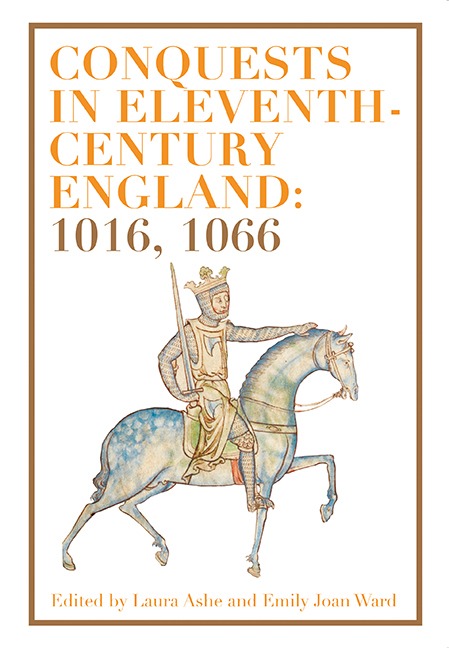Preface
Published online by Cambridge University Press: 26 April 2020
Summary
In July 2016 the conference ‘Conquest: 1016, 1066’ was held in Oxford, to mark the millennial anniversary of Cnut's conquest of England, and the 950th anniversary of the Norman Conquest. Speakers were invited and papers submitted from all disciplines, with the explicit aim of ‘doing comparative history’. The primary intention was simple, but surprisingly fresh: to compare the Danish with the Norman conquest – to compare their agents, origins and effects; their mechanics and logistics; their ideologies, hinterlands and legacies. The present volume had its genesis in the Oxford conference, but it has been independently shaped by much further, and separately commissioned, work. In the process, of course, necessary comparisons have multiplied: of England with its neighbours, of the effects of different conquests in different regions, and on different institutions, and in the varied spheres of cultural production and social experience. The wholly interconnected, European and Scandinavian, nature of eleventh-century England emerges at every turn, and provides comparisons which are, more importantly, essential components: of a fundamentally hybrid and multiple identity to ‘English’ politics, society and culture.
The aim of this volume is to offer a breadth of scope which amounts to an overview of England's eventful eleventh century, while each chapter nonetheless gives deep and close attention to its central questions, in many cases breaking new ground in the documentary evidence, or providing fresh synoptic readings which newly reveal the landscape. With this in mind, the first two parts consider in turn the high politics of the period, its greatest agents and institutions, and its economic, legal and bureaucratic practices; then its social, ideological and artistic phenomena: conquered England's cultural production, influence and connections. Finally, the third part explicitly turns outward, to place conquered and reconquered England in the context of its European, Scandinavian and insular neighbours.
The Norman Conquest has been much studied; the Danish conquest (with its lower case ‘c’) comparatively very little. Yet as many of our contributors suggest, the former may have been unimaginable without the latter; certainly, it would have taken thoroughly different forms. This volume aims to clarify and illuminate that relationship, and thereby to throw new light on eleventh-century history as a whole. Marked by multiple chronological, geographical and political caesurae which have separated scholars in their various departments, eleventh-century historiography is ripe to be reconstituted.
- Type
- Chapter
- Information
- Conquests in Eleventh-Century England: 1016, 1066 , pp. vii - viiiPublisher: Boydell & BrewerPrint publication year: 2020

